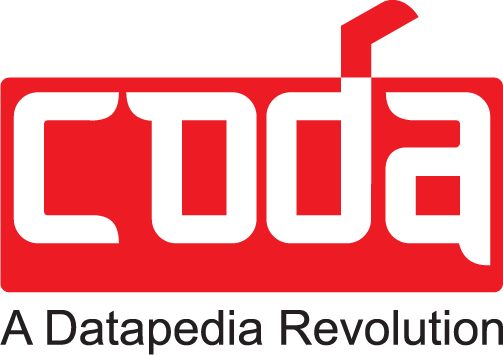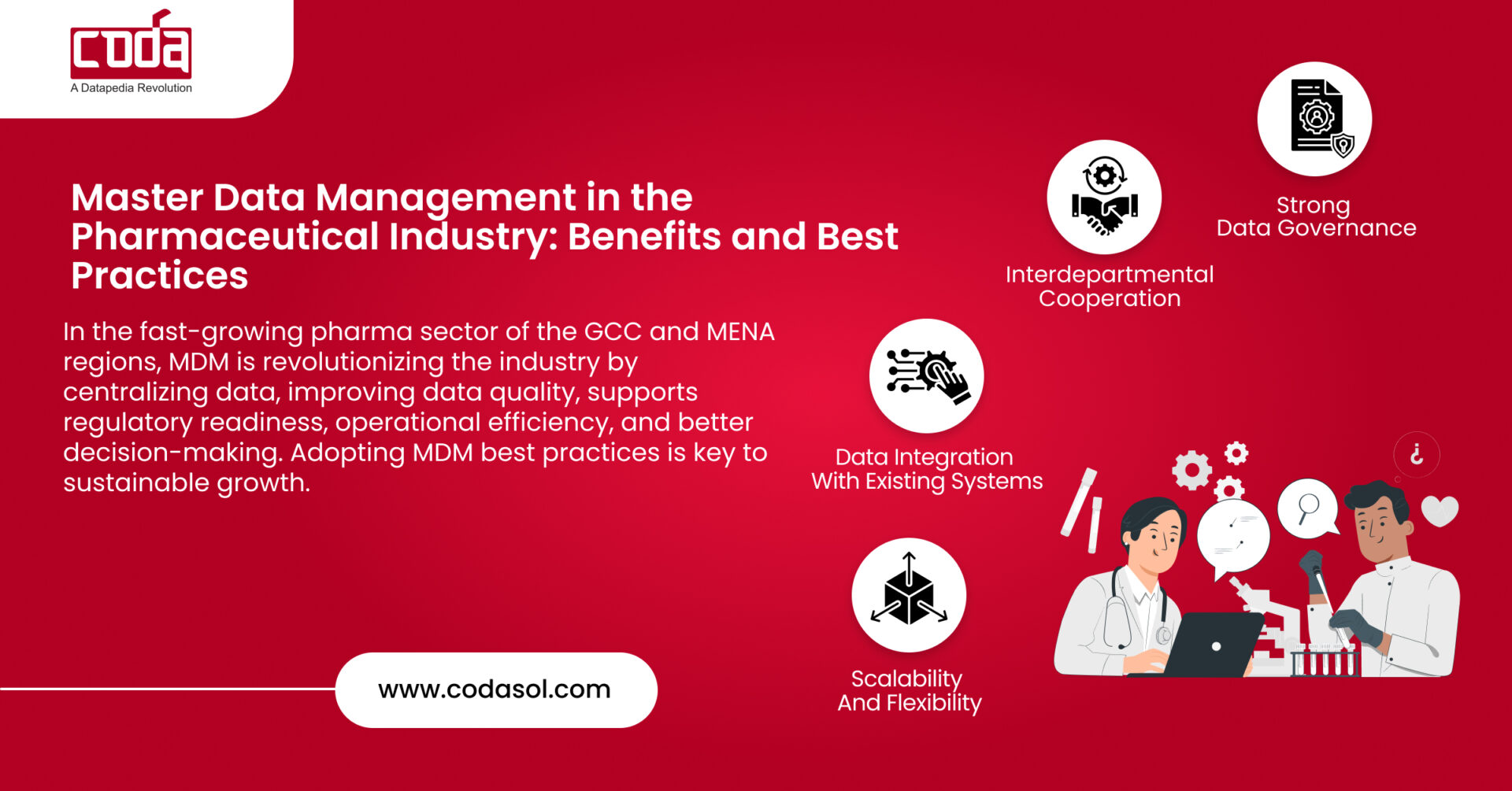The pharmaceutical industry is at a data crossroads. With over 2.5 quintillion bytes of data generated daily and an anticipated 800% growth in the next five years, managing this data has become increasingly complex. Clinical trials, patient records, drug production, market research, and supply chains are all producing massive volumes of data. Without a robust management strategy, this data becomes fragmented, inconsistent, and unreliable. This is where Master Data Management (MDM) comes in – the comprehensive solution designed to transform how pharmaceutical companies handle their most critical asset: data.
The Need for Master Data Management in Pharma Industries
The pharmaceutical industry’s rapid growth, particularly in the GCC and MENA regions, means effectively handling large, diverse data sets is crucial. MDM provides a holistic approach to achieve a unique “golden record” – accurate, consistent, reliable, and accessible data across departments. This enables streamlined operations, data-driven decision-making, and regulatory compliance while reducing costs.
Benefits of Master Data Management in Pharma Industries
1. Ensuring Regulatory Compliance
The pharmaceutical industry must adhere to stringent regulations set by bodies like the Food and Drug Administration (FDA) and the European Medicines Agency (EMA). MDM ensures compliance by centralizing, standardizing, and keeping data up to date. This helps build confidence in the data’s accuracy, privacy, and reliability, which is vital for patient safety.
2. Improved Data Quality
MDM eliminates data mismatches across various departments, creating a unified, cleansed data repository. This quality data set is crucial for handling clinical trials, making informed decisions, and supporting accurate research outcomes.
3. Enhanced Operational Efficiency
In the fast-paced world of drug development and clinical trials, operational efficiency is critical. MDM breaks down data silos, ensuring seamless data integration. This allows for a smooth flow of information, accelerating drug development and enhancing productivity.
4. Accurate Patient and Product Records
Successful drug and clinical development hinge on maintaining accurate data from both the patient and product sides. MDM acts as a bridge, facilitating the collection and integration of health-centric data to ensure quality and consistency.
5. Robust Data Governance and Security
Given the sensitive nature of patient data, the pharmaceutical industry requires strong data governance strategies. MDM establishes data stewardship roles and enforces access restrictions to comply with regulations like GDPR and HIPAA, thereby safeguarding patient records and maintaining high data quality.
Best Master Data Management Practices for the Pharmaceutical Industry
1. Strong Data Governance
MDM builds strong data governance policies by defining how data should be maintained, updated, accessed, and integrated. It involves assigning stewardship roles to individuals who ensure data is managed safely and complies with regulations such as FDA and EMA guidelines.
2. Interdepartmental Cooperation
Successful MDM practices rely on seamless collaboration between various departments like Research & Development (R&D), manufacturing, supply chain, regulatory affairs, marketing, and sales. MDM breaks down data silos, ensuring that data flows consistently across these domains without errors or inconsistencies.
3. Data Quality
Data quality is paramount in the pharmaceutical industry, as it directly impacts patient outcomes. MDM provides several functions to structure and maintain high-quality data:
- Data Cleansing: Removes irrelevant data to make the dataset usable.
- Data Enrichment: Adds additional values to the existing dataset to enhance its usefulness.
- Data Standardization: Organizes data into specific domains for easier integration and analysis.
4. Data Integration with Existing Systems
MDM creates a single data repository, facilitating seamless integration with systems like Enterprise Resource Planning (ERP) and System Application Products (SAP). This master record streamlines workflow by eliminating duplicate data and filtering out irrelevant information, making it accessible from anywhere.
5. Scalability and Flexibility
Adopt MDM platforms, such as CODASOL’s PROSOL, that offer scalability and flexibility. These platforms adapt to recent trends and patterns, ensuring primary data is prioritized to boost revenue and operational workflow.
Wrapping Up
In the pharmaceutical industry, data accuracy, reliability, and consistency are essential for maintaining patient records effectively and safely. Master Data Management plays a remarkable role in this endeavor. By embracing CODASOL’s MDM best practices, powered by AI and ML technology, pharmaceutical companies in the GCC and MENA regions can revolutionize their data management and achieve a compound annual growth rate (CAGR) of 5-10% by 2027.




